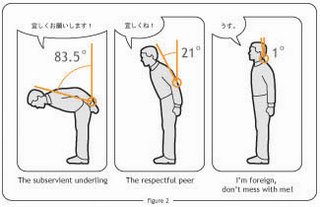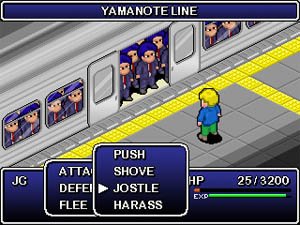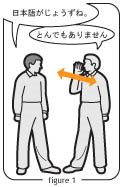One onerous aspect of working in Japan is one that most foreigners don't know about until they get stung by it; what is laughably called the "bonus scheme".
There are several different types of employment contract you can sign when you join a Japanese company. Each company has its own system, of course, but what seems usual is to hire someone under a three or six month temporary contract, which acts as a kind of probation period. After a successful run the employee may be offered a full-time contract which lasts for a year. This contract usually has all the usual benefits: health, tax, pension, etc. After this contract has concluded the employee may be offered another one, until the project is finished, or be offered a full-time "seishain" contract. This is basically a full-time contract which lasts, has all the benefits and the dreaded bonus scheme.
(Note: a few notable exceptions exist to this rule. Some companies do not offer "seishain" contracts, period.)
Say you blag your way into a 6,000,000 Yen/annum salary. First you need to tell me where you work and if there are any artist positions open. Under a part-time or 1 year contract your salary would be:
6,000,000 Yen / 12 months = 500,000 Yen/month (before tax)
Which is nice.
Now you are offered a "seishain" contract. This includes, you are told, a twice yearly bonus of 1 month each. "Great," you think, "I get my salary of 500,000 a month plus an extra 500,000 Yen twice a year!". Well....no, not quite. What happens is that the company
withholds those 2 months from your salary and pays it out in two 1 month chunks twice a year. So the sum goes thus:
6,000,000 Yen / 14 months = 428,571 Yen/month (before tax)
+ 2x 428,571 Yen (before tax)
Yes, you heard me right. They deduct the money from your salary and then give it back to you later as a "bonus". And 14 months is just an example. Some companies have "bigger bonuses" which means bigger deductions from your monthly salary.
6,000,000 Yen / 12 months = 500,000 Yen/month (before tax)
6,000,000 Yen / 14 months = 428,571 Yen/month (before tax)
6,000,000 Yen / 16 months = 375,00 Yen/month (before tax)
6,000,000 Yen / 17 months = 352,941 Yen/month (before tax)
6,000,000 Yen / 18 months = 333,333 Yen/month (before tax)
As you can see, the company's bonus scheme can seriously affect your monthly income.
But surely there is more to it than this? Well, yes, to an extent. The bonus payout follows the same kind of performance related adjustment as in the West. If your work is bad, your timekeeping terrible and your manner atrocious you could get a bonus which is lower than the money deducted from your salary. On the flipside it can also be higher. But don't be fooled. These steps are usually in single digit percentages.
So what is called a "bonus" in Japan is basically a scheme where your employer gets to keep his grubby hands on some of your cash to invest with, collect interest on, and to keep that dangling over your head to make sure you stay to collect what you're owed. A "bonus" it is not. Sure sometimes you can get a few percent more than what was withheld, but is that worth the decrease in your monthly salary? Probably not.
If you sign a "seishain" contract you are basically forced to participate in the "bonus" scheme. So why go for "seishain" at all? Well, there are a few reasons you may want to consider:
As a foreigner, getting a "seishain" contract will show your next employer that you have been through the system, played the game, that at least one other company valued you enough as an employee to offer you the same contract it offers its Japanese employees. This means something.
Slightly better job security. It's much harder to get rid of someone under a "seishain" contract. One year contracts can simply run out and not be renewed.
For certain official institutions having a "seishain" counts in your favour. Be it trying for a loan, (re-)applying for a Visa or applying for permanent residency.
It will go some way to help you integrate in your company. Being treated as badly as the rest of the Japanese staff means you've successfully become part of the whole. Whether this is truly beneficial depends on your doomed wish to become Japanese.
The most important thing is to be aware of this "bonus" system. Ask about it in interviews so you won't get a shock when your first paycheck comes in. Think long and hard before you sign that "seishain" contract. And if you do, never quit your job until you've received your bonus, or you'll be throwing away money.











 Bowing is a weapon, not a mere social nicety. The true gamesman knows this all too well and will make extensive use of it.
Bowing is a weapon, not a mere social nicety. The true gamesman knows this all too well and will make extensive use of it.





